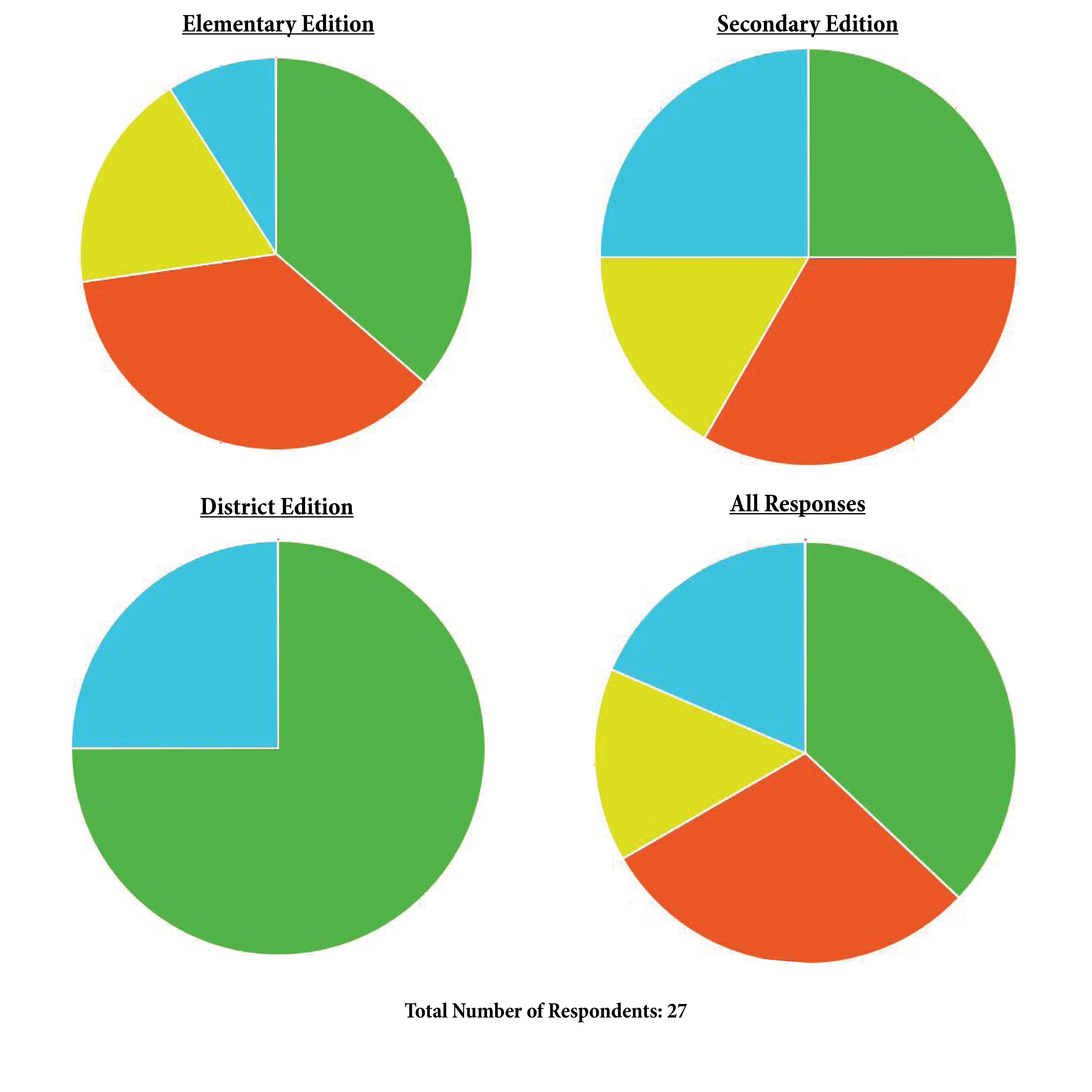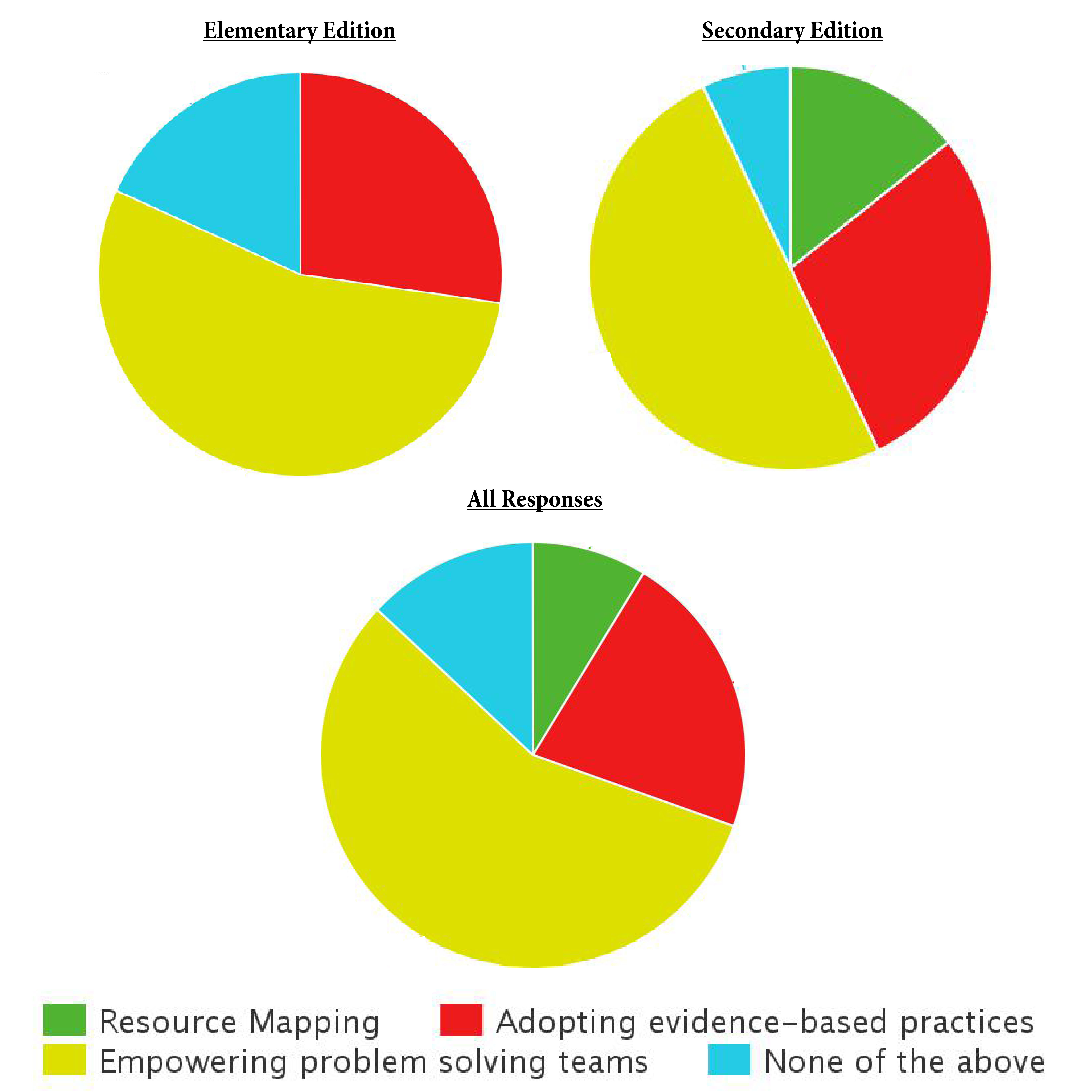September 14th EditionPromoting Evidence-Based Mental Health Practices: One Road to Achieving Excellenceby Thomas R. Kratochwill, University of Wisconsin-Madison Schools represent a major option to promote evidence-based mental health services to children and families. The need for these services is extraordinary as reflected in some of these alarming statistics: Ten to 22% of children and youth in the U.S. (approximately 15 million) are in need of mental health services. Of those 15 million children and youth, approximately 21% receive mental health services. Close to 75% these children are eligible to receive these services in our nation’s schools. Children growing up in communities of concentrated poverty are especially vulnerable given that they may not have access to mental health services. In the latter case, the U. S. Census Bureau has noted that about 1 in 4 children in the U. S. spend some or all of their childhood living in an environment of poverty. And poverty represents a major risk factor for developing both health and mental health problems. Identifying Your “Vital Few” Leadership Actions for High Impact in 2016-17by Joe Schroeder, PhD, Associate Executive Director, AWSA In our Learning Leadership Academy (LLA), we help school and district administrators develop thoughtful, high-leverage plans for expanding their impact on student and teacher learning. In order to accomplish this, participants identify a “vital few” number of prioritized leadership actions, ones they can apply skillfully and consistently over an extended period of time that match the greatest identified needs of their local context. In this article, I share three tools we offer leaders for use in making these important local decisions and then drill down deeper into one of the tools in particular. eSports in Educationby James O'Hagan, Director of Digital & Virtual Learning, Racine Unified School District Coming this fall, one of the most watched sports competitions on the planet will occur in the United States. San Francisco, New York, Chicago and Los Angeles will be host cities for this competition. You may think I am talking about baseball’s World Series. However, I am talking about the League of Legends World Championships. The future of sports is eSports.
The Effect of Student AbsencesRecently, the Department of Public Instruction shared the new research that shows nearly half of American parents underestimate the harm of school absences. To combat chronic absenteeism, the U.S. Department of Education, the Charles Stewart Mott Foundation, and the Ad Council have partnered to create a public service campaign,Absences Add Up. The campaign features a series of digital and out of home PSAs that drive parents to AbsencesAddUp.org. On the website, parents are empowered with information and resources to help ensure their children attend school each day. Details are available in the press release found here. Principals and district leaders, we encourage you to share this information with your staff and among your member and affiliate networks as appropriate. August 31st Poll ResultsIn line with the August 31st edition's article by Joe Schroeder entitled "Locking in the Time for High Impact, by Sept. 30, I will have ___. (Please select the option that describes how far you plan to advance in these connected efforts.)
  September 28th EditionFrom Obligation to Opportunity: Teacher Supervision That Improves Student LearningThis article is adapted from an article published in the Washington Principal; Fall 2013. by Laura Lipton and Bruce Wellman, Co-directors, MiraVia, LLC In Wisconsin, as in most of the country, teacher evaluation processes are changing dramatically. The focus of the supervisory process is shifting: from fulfilling contractual obligations to promoting opportunities for growth; from using data to prove to using data to improve, from evaluation as an event to evaluation as a process and from teachers asking “what are my scores?” to asking “what are my goals?” Much of the impetus for these initiatives stems from a fundamental premise: Teacher effectiveness links directly to student learning and skillful supervision links directly to teacher effectiveness. In well-implemented evaluation systems, the difference between highly rated teachers and those scoring at the lower ends of performance scales can be an entire year’s worth of additional learning for students. Such evaluation systems include: clearly articulated and well-understood standards and related performance scales, high-levels of supervisor observation and analysis skills, and both formative and summative conferences aimed at teacher development, not remediation. Recent studies suggest that even when the first two factors are in place, confidence and competence in learning-focused supervisory conferences make a fundamental difference in teacher growth. Mental Health Crisis in Our Schoolsby Barbara Gransee Adams County community residents, like many other residents in rural Wisconsin communities, are faced with unique stressors such as a lack of transportation, lack of employment opportunities, and the lack of skilled childcare. They are more apt to experience greater challenges accessing quality mental health care than those in more urban settings. Therefore, when staff from the Adams-Friendship Area School District were approached to testify in front of the Wisconsin State Senate Education Committee this past winter regarding our mental health crisis in both the school district and our community at large, and to share all that we are doing to combat it, we were ecstatic. Our message to the Senate included harrowing statistics, a student story of hope and eventual loss, a description of grant-funded activities we are conducting to address mental health, and a call for action to assist school districts in abating the mental health crisis in schools. Why Digital Citizenship is Digital PBIS- and Why It Really Mattersby Brian Casey, Ed.D.Director of Technology Stevens Point Area Public School District "Our kids are growing up on a digital playground and no one is on recess duty." Kevin Honeycutt Technology has changed the world we live in. Today’s digital landscape is very different from when most educators began their teaching careers. According to authors Rainie and Wellman (2012) we have undergone a ‘triple revolution’ with the proliferation of mobile computers, widespread participation in social networks and the expansion of access to high-speed internet connections. The way our children interact with others and learn new things has changed since we grew up. Online behavior is no longer external to education. Most older students now carry around a portable computer in their pocket and many receive a device from their school to use (Anderson 2015). Redefining Ready!by Joe Schroeder, PhD, Associate Executive Director, AWSA Dr. David Schuler (the 2015-16 AASA President, a former Wisconsin educator, and current superintendent of the high-performing District 214 in Chicago’s northwest suburbs) gave a rousing keynote at the WASDA Fall Convention on Sept. 16 in Madison. Dave’s message: America’s schools have a profound responsibility to ensure that our nation’s students are college ready, career ready, and life ready. But standardized test scores -- traditionally used as the primary readiness indicator -- do not always provide an accurate representation of our students’ potential. Our students and profession deserve better. Therefore AASA is launching a national campaign to introduce a new multi-metric, research-based approach to determining what it truly means to be ready. September 14th Poll ResultsGiven the three entry points Tom Kratchowill discussed in his Update Bulletin article for promoting evidence-based mental health in schools, which area has your school prioritized as a means for supporting students' positive mental health?
 |
